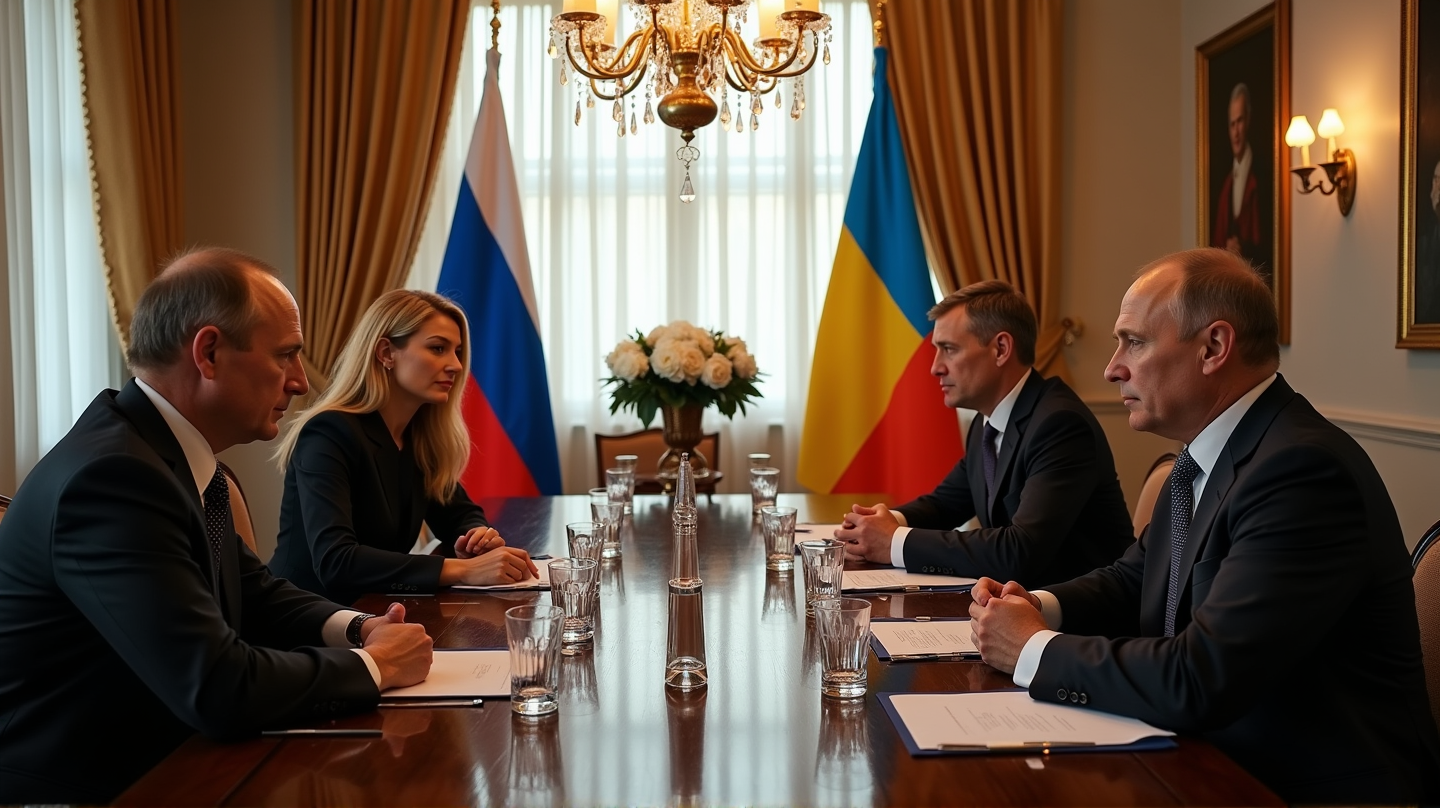Putin's Surprising Proposal: A Renewed Call for Direct Peace Talks with Ukraine
In an unexpected move, Russia's Putin invites Ukraine for direct peace negotiations in Istanbul, aiming to resolve the ongoing conflict.

In a significant and unexpected diplomatic move, Russian President Vladimir Putin has extended an olive branch to Ukraine, proposing direct talks on May 15 in Istanbul. This announcement marks a potential turning point in a conflict that has persisted for years. According to Reuters, Putin’s call for negotiation aims to clear the fog of war and work towards a lasting peace.
A History of Interrupted Talks
The road to peace between Russia and Ukraine has been fraught with challenges. Putin emphasized that it was Kyiv that walked away from previous negotiations in 2022, yet he remains open for dialogue. “Despite everything, we offer the Kyiv authorities to resume negotiations already on Thursday, in Istanbul,” Putin declared, reiterating his commitment to peace without preconditions. This urgency for dialogue presents a glimmer of hope to quell a war that has seen countless ceasefire proposals go unheard.
The Stakes of the Istanbul Meeting
This proposal for negotiations is not just a fleeting attempt but a calculated effort to “eliminate the root causes of the conflict.” Putin expressed that reaching a new truce would be a watershed moment not only for the warring nations but for their citizens who yearn for peace. Both Russian and Ukrainian representatives have the chance to reignite their long-stalled diplomatic processes and potentially pave the way for a permanent ceasefire.
Reactions and International Implications
The international community is closely watching developments as the NATO foreign ministers’ meeting, which includes U.S. Secretary of State Marco Rubio, is set for May 14-16 in Turkey. The world awaits a hopeful outcome from the high-stakes negotiations in Istanbul. Even Pope Leo XIV has called for peace, emphasizing the global desire for an end to hostilities.
The Path Forward: Hope and Skepticism
Though optimistic, many remain cautious about the prospects of these talks effectively ending hostilities. Skepticism stems from both past experiences of failed agreements and ongoing military actions, as indicated by Putin who reported ongoing hostilities despite a declared ceasefire. The world will be closely monitoring whether cooler heads can prevail in Istanbul, turning this proposal into a stepping stone for long-term peace and stability.
As history is written, the success of these talks holds the promise of being a pivotal chapter in European diplomatic history. Will May 15 become a date symbolizing the dawn of peace between Russia and Ukraine, or will it be an opportunity lost to political brinkmanship?





